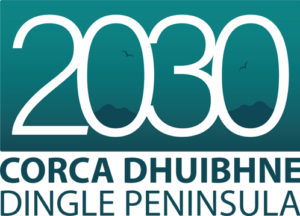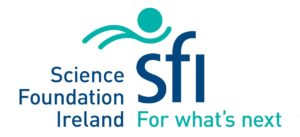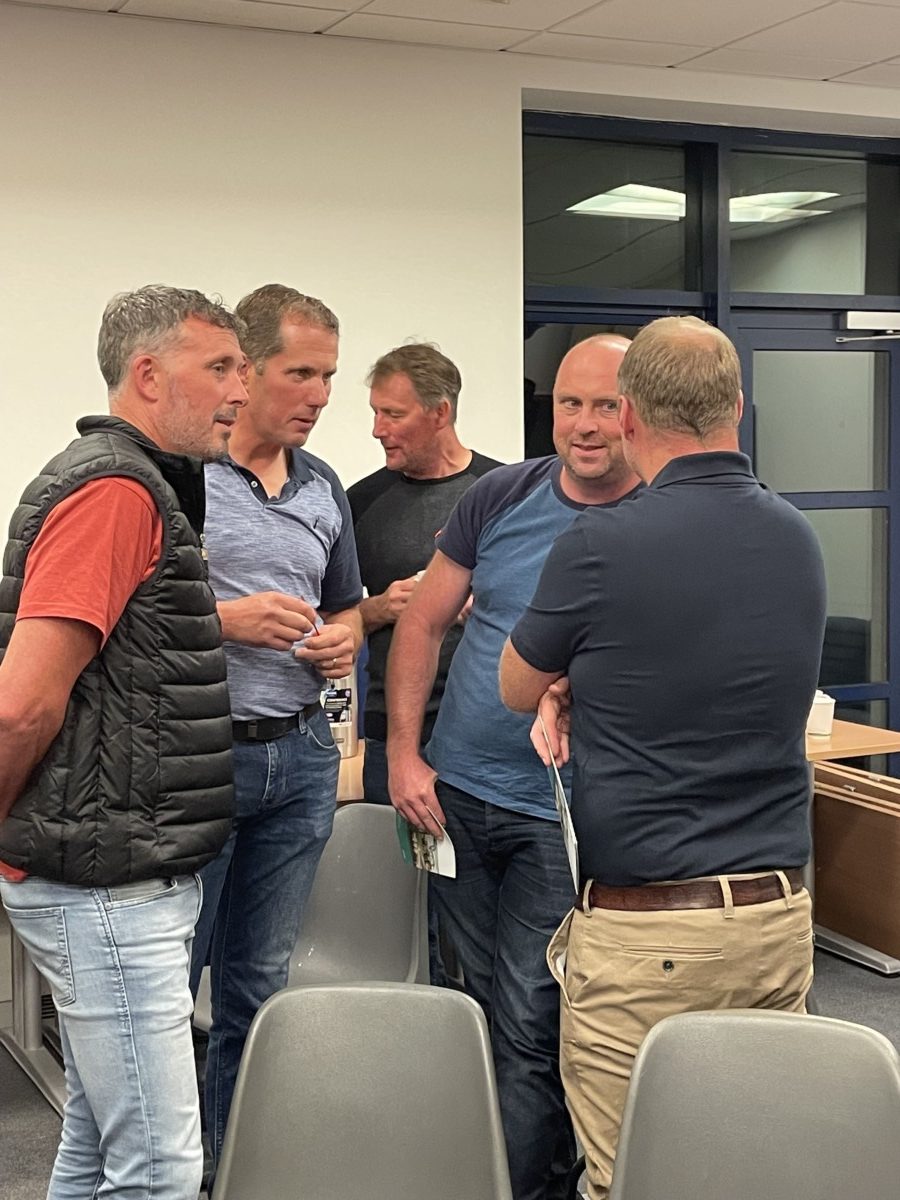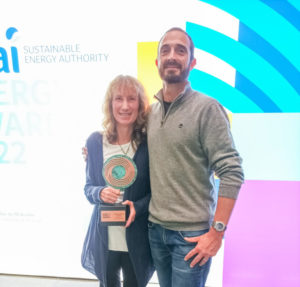Members of West Kerry Dairy Farmers Sustainable Energy Community (WKDFSEC) came together in Dingle on August 24th to hear how their use of energy has been analysed and to see what steps they can take to become more energy efficient. The group had commissioned an Energy Master Plan (EMP) to calculate their existing energy practices and from this analysis, identify ways to become more energy efficient. An EMP is an essential first step of any Sustainable Energy Community (SEC) to baseline their usage.
At a general meeting held in Dingle, the group heard these key findings and recommendations:
- In 2019, this farming community used energy of over 10,000 MWh (generating 2,900 tonnes of CO2) and costing circa €1 million.
- Technology such as Solar PV panels will reduce energy costs, where the meter between the dairy parlour and the domestic dwelling is shared.
- Heat Recovery systems used in a dairy parlour could lead to more than halving the energy required for heating water, leading to potential savings of over €800 per annum.
- Agricultural diesel is the single biggest energy consumer (52%) and costing circa €750,000. (If biomethane could be substituted for diesel, there is a substantial market opportunity.)
- Retrofitting of farm dwelling houses to B2 could reduce energy usage by 1,400 MWh and 360 tonnes of CO2.
These and other findings were presented to the assembly by representatives from DCSix Technologies, the consultancy company contracted to undertake the group’s EMP. This report now acts as a baseline of overall energy demand of the SEC and also contains a roadmap for the sector to become more energy efficient, in cost-effective and practical ways. This research work was supported by the Sustainable Energy Authority of Ireland (SEAI) through funding and advice. The finalised EMP containing these recommendations will be published here in the near future.
This group of Corca Dhuibhne farmers benefited from being part of SEAI’s nationwide Sustainable Energy Community network and is the first in Ireland dedicated to a particular sector (dairy farming, in this case). Kerry Agribusiness, SEAI, ESB and Dovea Genetics were initial backers of the WKDFSEC group and provided funding that has helped get the SEC to this point.
The meeting heard that the next step on the roadmap is holding over 100 individual surveys of every farm in the membership. The purpose of these is to understand each dairy farm’s unique aspects and quantify their actual energy use to decide which climate action activities are best suited to becoming more energy efficient. Further funding has been secured by WKDFSEC from SEAI and Kerry Agribusiness to begin this work.
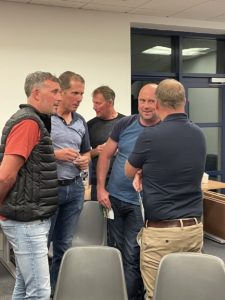
SEAI’s Programme Manager for the SEC network is Ruth Buggie who addressed the room, commending the enthusiasm of these West Kerry farmers. She provided an overview of these further funding opportunities and supports from the body, which is responsible for promoting and aiding the development of sustainable energy in Ireland.
Kerry Agribusiness has also provided further funds, essential for these energy surveys to begin. Commenting on this development, James O’Connell, General Manager Kerry Agribusiness said:
“Kerry Agribusiness are proud of our strong dairy heritage and engage with our milk suppliers on an ongoing basis to ensure the adoption of best practice initiatives that support grass-based, sustainable milk production. We are delighted to provide financial support to the West Kerry Dairy Farmers Sustainable Energy Community for the next stage in this sustainability project as part of the Knowledge Transfer Pillar of Evolve, our dairy sustainability programme.”
Also speaking at Wednesday’s meeting was Barry Caslin, Energy & Rural Development Specialist with Teagasc (the Agriculture and Food Development Authority) who spoke about other supports and information available to farming communities.
Dingle Hub‘s General Manager Deirdre de Bhailís also spoke at the gathering. She sits on the steering committee of the WKDFSEC and emphasised the support Dingle Hub will continue to give the group as they continue their journey.
Chair of the WKDFSEC is Dinny Galvin who formed the group and has inspired farmers near and far to take his lead. He said:
“This group of more than a hundred dairy farmers in Corca Dhuibhne is beyond eager to take the next steps for their farms and for the environment. We have achieved a lot already with this Energy Master Plan – it shows us where we are now and how we can move to take climate action. I have seen on my own farm that many of these activities are low-hanging fruit but they make a strong impact on energy efficiency and farm finances.”
He applauded Kerry Agribusiness and SEAI for their commitment to supporting the dairy farmers of Corca Dhuibhne, saying:
“It is time to get these energy surveys done so we can take the opportunities to make the biggest difference on our holdings. It is fantastic to get this significant funding from SEAI and Kerry Agribusiness. They have supported us from the start and it’s great company for our onward journey in climate action. This inspires the dairy farmers of West Kerry and hopefully farms across Ireland and further afield.”
Tháinig baill Phobail Fuinnimh Inmharthana Feirmeoirí
Déiríochta Chorca Dhuibhne (PFIFDCD) le chéile chun cloisint faoi chonas go bhfuil anailís déanta
ar a gcuid úsáid fuinnimh, agus cad iad na céimeanna a d’fhéadfaidis a thógaint chun a bheith níos
éifeachtaí timpeall ar chúrsaí fuinnimh. Bhí an grúpa tar éis Máistirphlean Fuinnimh a choimisiúnú
chun féachaint ar a gcleachtais fuinnimh reatha agus, ón anailís seo, chun slite le bheith níos
éifeachtaí ó thaobh fuinnimh a aithint. Is céim thosaigh riachtanach é MPF d’aon Phobal Fuinnimh
Inmharthana (PFI) chun a úsáid fuinnimh tosaigh a ríomh.
Ag cruinniú ginearálta a tionóladh sa Daingean, chuala an grúpa na príomh-thorthaí agus moltaí
seo a leanas:
● Sa bhliain 2019, d’úsáid an pobal feirmeoireachta seo fuinneamh de níos mó ná 10,000
Mwh (ag giniúint 2,900 tonna de CO2) le costas de timpeall €1 milliún.
● Déanfaidh teicneolaíocht ar nós painéil gréine laghdú ar chostas fuinnimh sa chás is go
mbíonn an méadar roinnte idir an parlús bainne agus an tigh cónaithe.
● D’fhéadfadh córais athghabhála teasa i bparlúis bhainne níos mó ná leath a bhaint de
chostas reatha fuinnimh maidir le huisce a théamh, rud a bheadh ina chúis le sábháil airgid
de bhreis agus €800 sa bhliain.
● Is é díosal talmhaíochta an saghas fuinnimh is mó a úsáidtear (52%), le costas de timpeall
€750,000. (dá ndéanfaí bithmheatán a mhalartú ar dhíosal, bheadh deis suntasach
margaidh ann).
● D’fhéadfadh iarfheistiú ar thithe cónaithe feirme go B2 laghdú de 1,400 Mwh a chur ar úsáid
leictreachais agus laghdú de 360 tonnaa chur ar ghiniúint CO2
